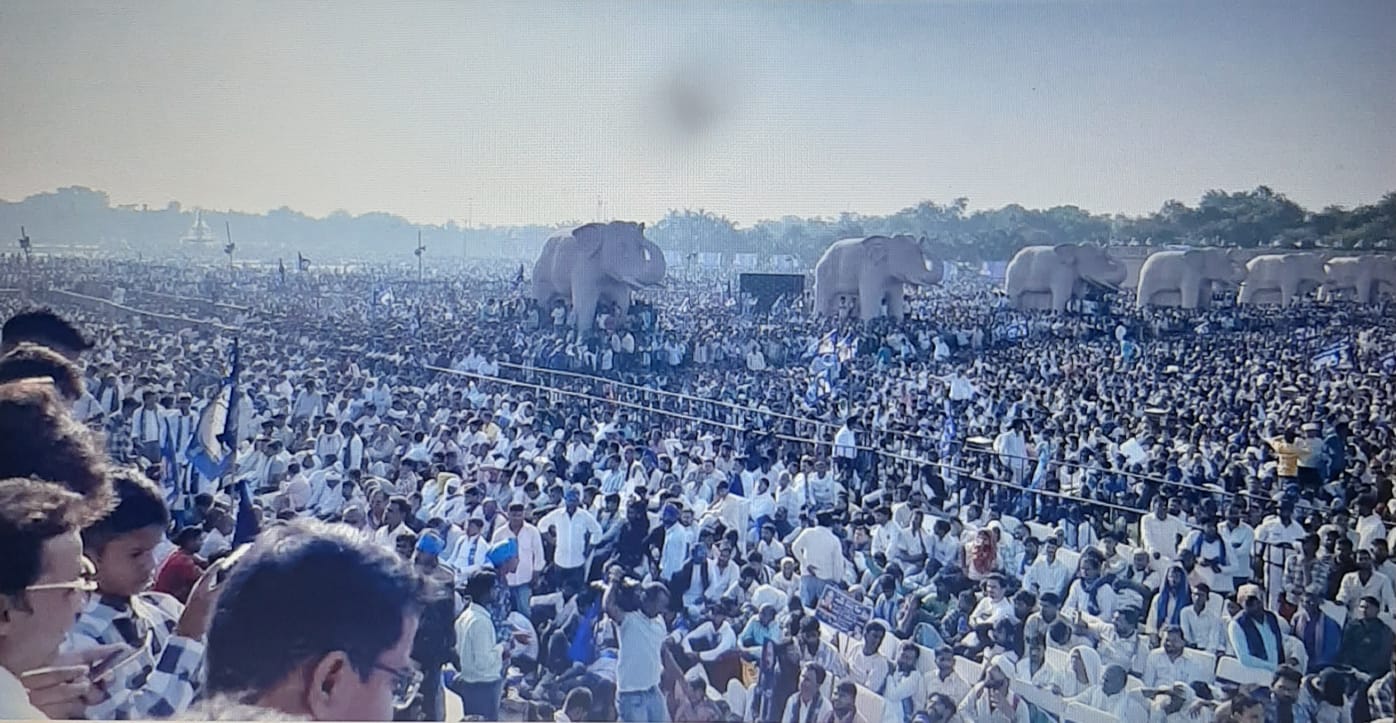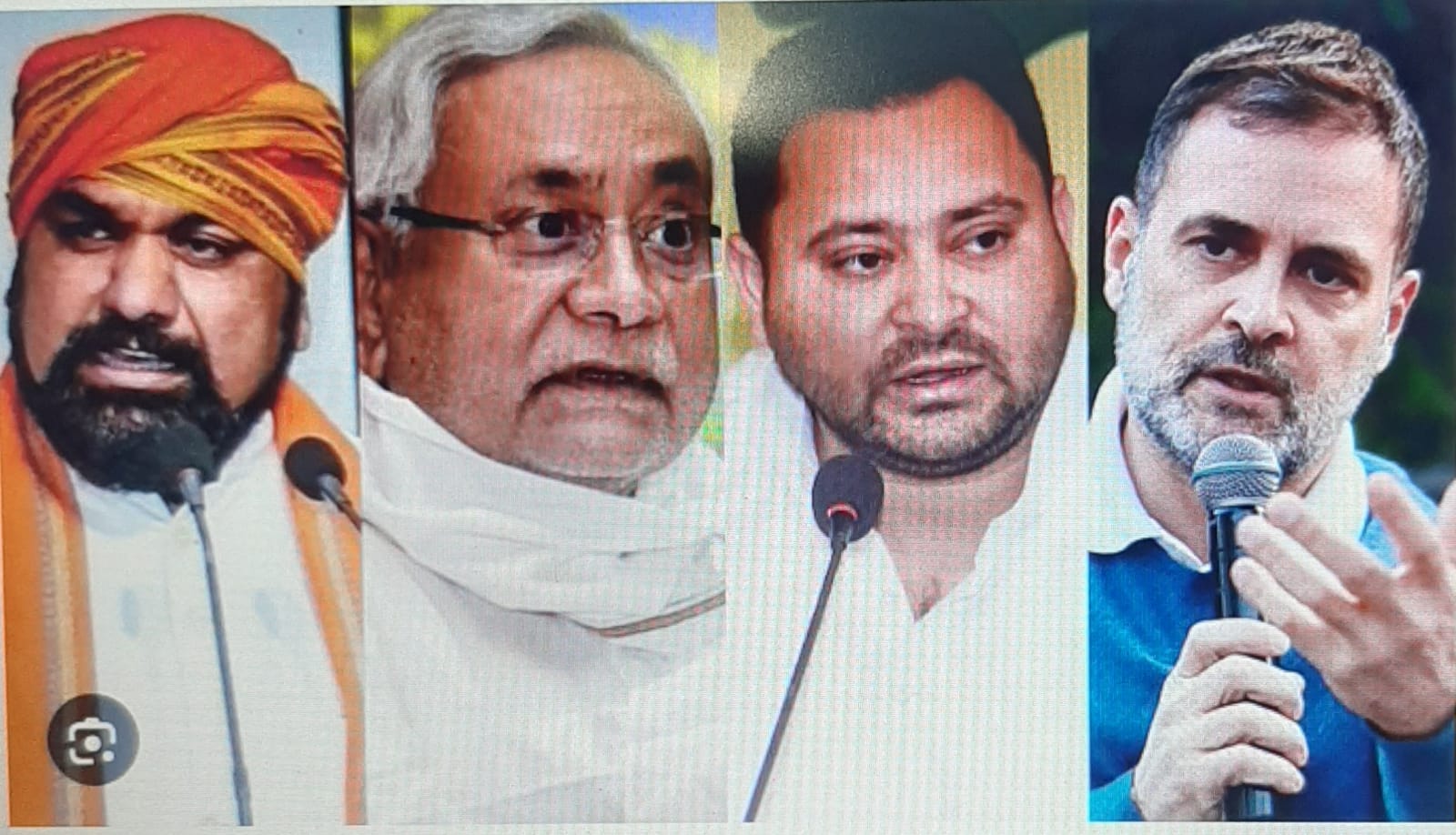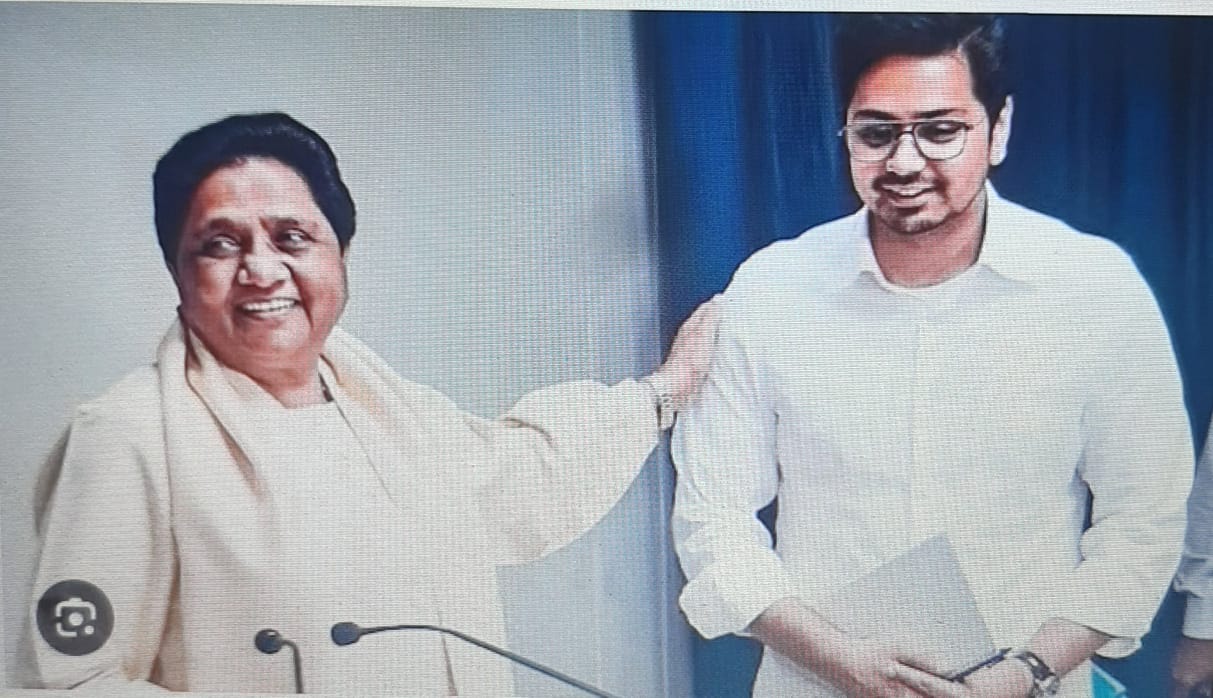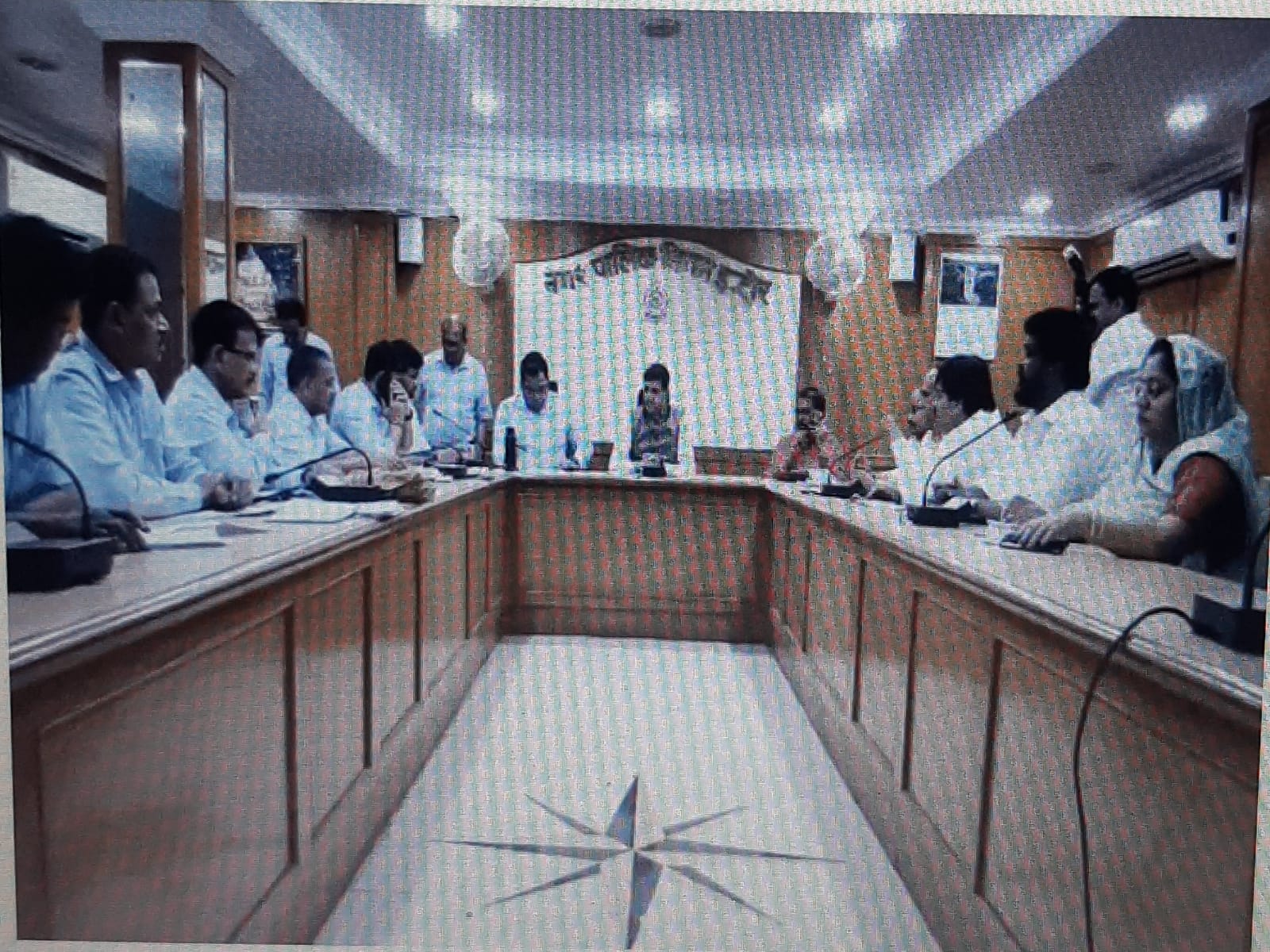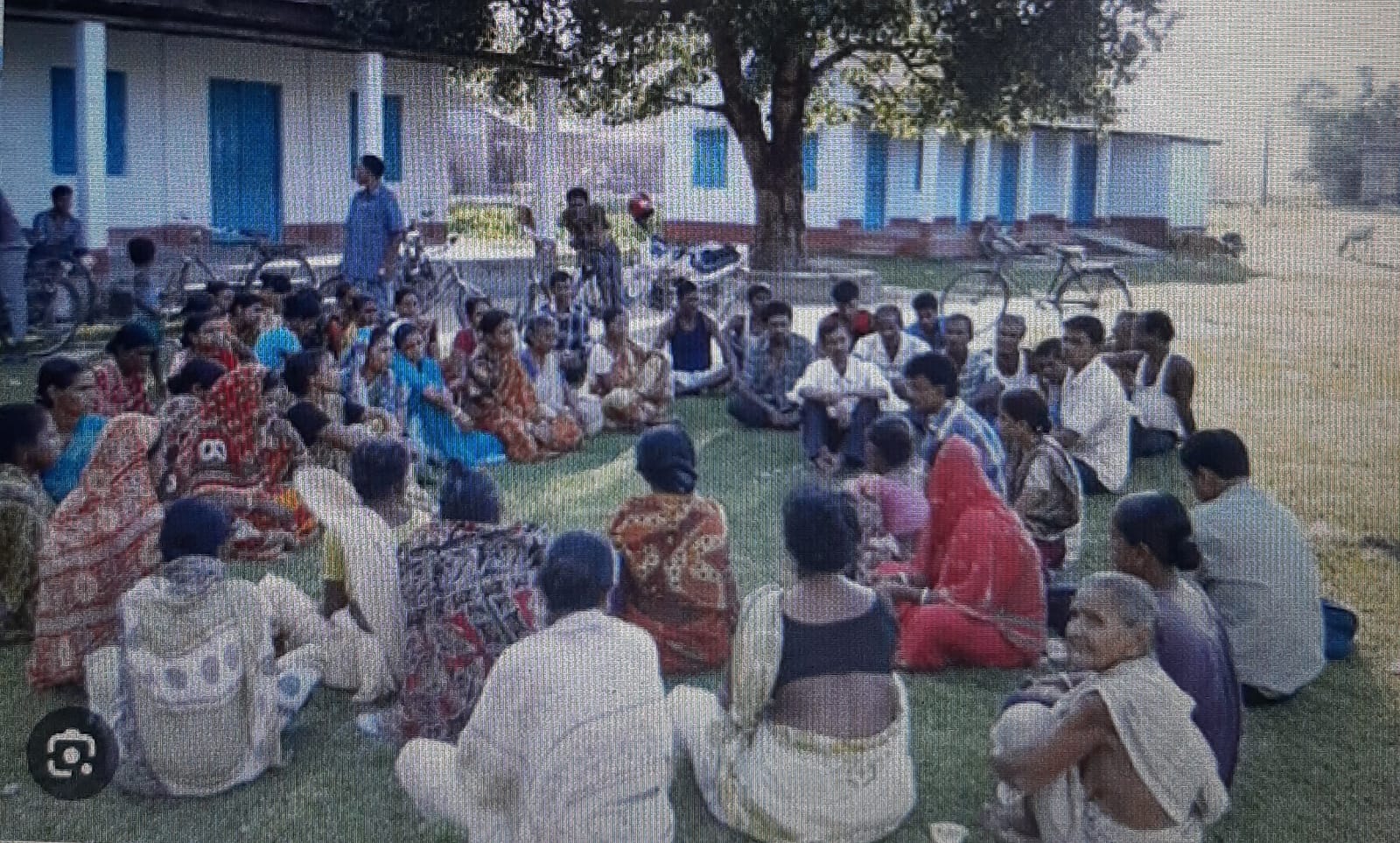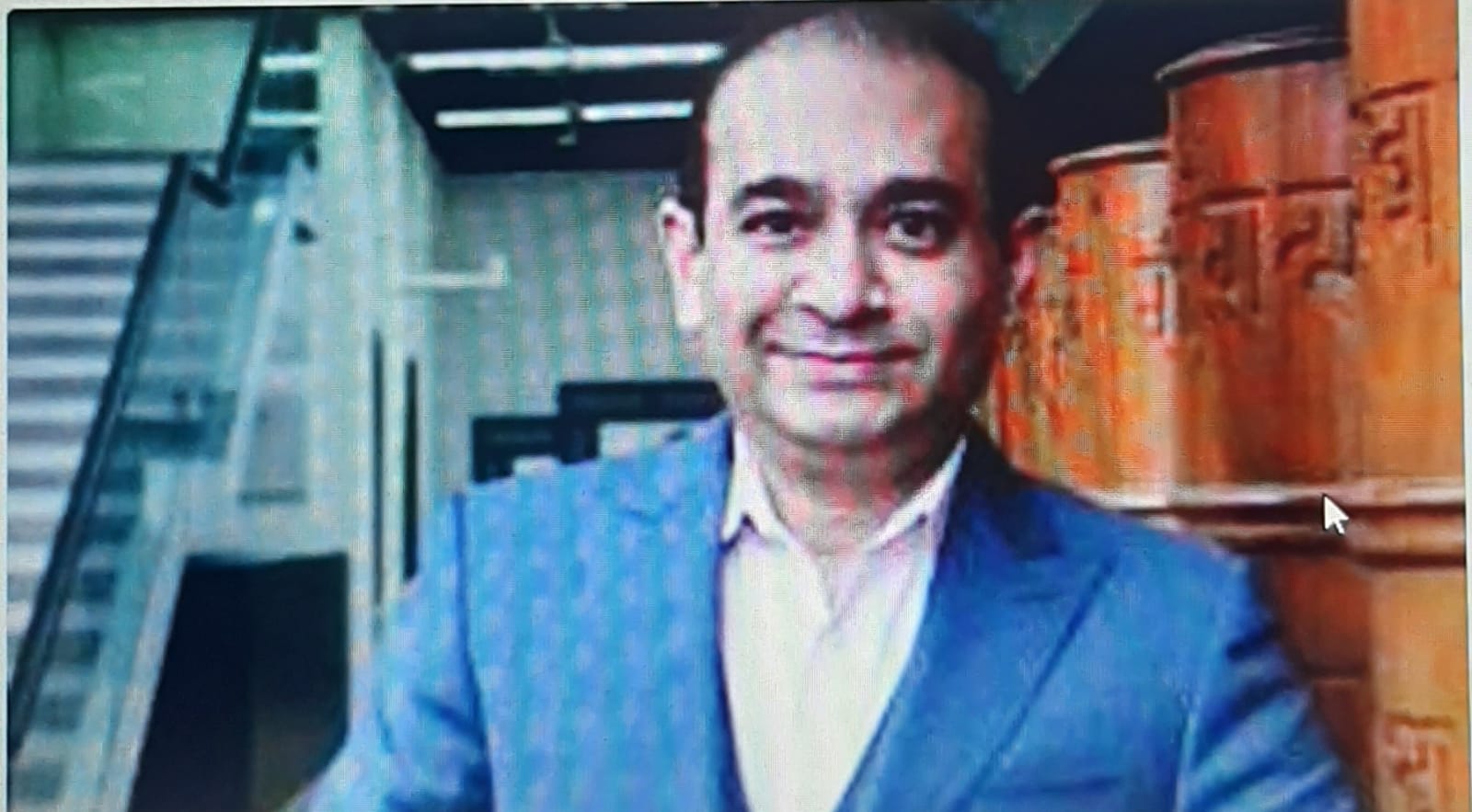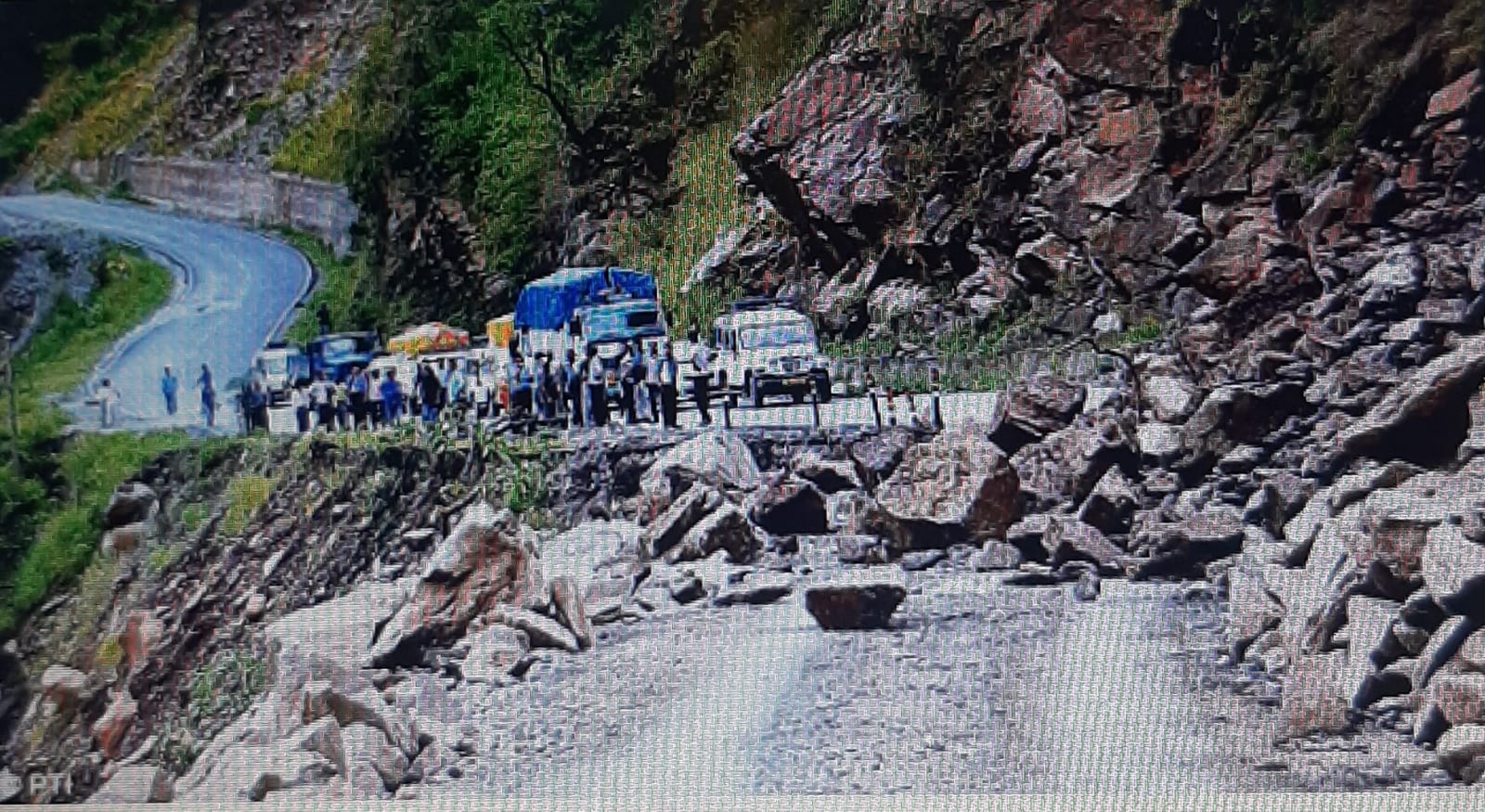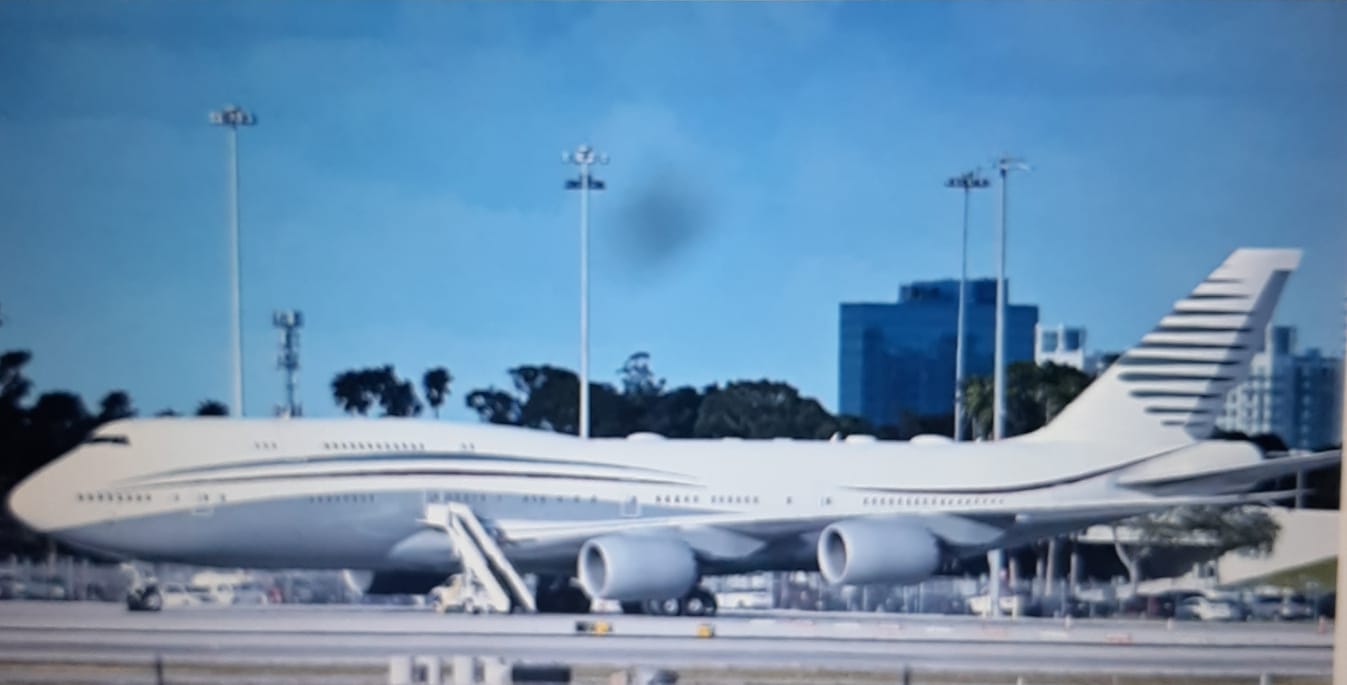
Use of big money in elections, their sources and the attendant quid pro quo are largely left unexamined. This is perhaps the ‘new normal’ in democracy world-wide. Or how else can one explain the open and brazen promotion of ‘big business’ by world leaders in established democracies. Electoral victory is erroneously regarded as a ‘mandate’ and ‘license to do whatever they pleased’ before the next election cycle writes former IAS officer Sunil Kumar
A news item published in the inner pages of a national daily[i] recently caught my attention. It mentioned that the Trump administration was planning to accept donation of a $ 400-mn luxury Boeing 747-8 from the Qatari royal family to President Trump’s presidential library which would allow him to continue using it as a private citizen after his term ended. The plane would be retrofitted by a Texas military contractor on lines similar to Air Force One used by the U.S. President.
Another news item published in a Hindi daily[ii] reported instances of how the functioning of several Gram Panchayats with women Sarpanch, mostly belonging to SC/ST category in Madhya Pradesh, had been outsourced to private individuals upon payment of Rs. one lakh per annum to the Sarpanch or for repayment of huge loan taken by the Sarpanch for contesting elections. These arrangements were clearly specified in black and white in registered contract deeds on stamp paper of Rs.50 to Rs.100.
This has been followed by another news story[iii] regarding the arrest of two sons of Gujarat Minister of State for Panchayat & Agriculture in connection with an alleged Rs.71 crore MGNREGA scam in Devgadh Baria Dhanpur talukas of Dahod district.
These three stories published in the last one month involving the strongest leader in the world, a person no less than the President of United States on the one hand and poor, barely literate Sarpanch of Gram Panchayats located in the tribal belt of Madhya Pradesh on the other (with a Minister in Gujarat thrown in between), are a telling commentary on the shifting moral compass of leaders across the world in the 21st century.
Today these stories hardly spark any outrage even in the two largest functioning democracies of the world where leaders, right from the local government to national government level, are democratically elected and accountable to the people. Corruption has come to be widely accepted as a ‘normal’ issue even in the West which traditionally had been more intolerant of corruption earlier. A former President of France has been convicted and so has the present President of USA. How and why this change has come about is something that needs to be carefully analysed.
The biggest attraction of democracy has been that the elected leaders are accountable to the people and at periodic intervals of say four to five years they have to return to the people and seek their votes afresh. Free and fair elections are sine qua non for any functioning democracy. Separation of powers to ensure that no one arm of government becomes ‘all-powerful’, strong institutions and independent media are some of the other features of a vibrant democracy.
Free and fair elections hold the key. And this is where we seem to have lost the plot. The way ‘big’ money plays a prominent and, at times, decisive role in shaping public opinion, swaying public mood and affecting voting patterns is amazing. Talk of money and muscle power along with caste and religious identities playing a major role in Indian politics have long been in circulation. However, there was a period in Indian history when flaunting of wealth was frowned upon in society and corrupt had no social standing as such. Students in every school would write essays on topics like ‘honesty is the best policy’! People would find it hard to believe that the UP IAS Association had conducted secret ballot twice in 1996 & 1997 to identify ‘three most corrupt’ IAS officers in a bid to cleanse the system from within using the ‘name and shame’ method[iv]. In today’s world a public speech on honesty would perhaps draw a snigger.
How and when this change happened? If we look back at Indian history we find that 1975 was a turning point in more ways than one. It’s not only remembered for the onslaught on democracy with the declaration of emergency but also the veneer of respectability that it gave to acts of corruption like using Jeeps ordered by the Government for electioneering purposes by big leaders of the ruling party and then their being refurbished and supplied to Government after the elections were over. These were branded as trivial, insignificant acts, ‘indiscretion’ at best, which were best ignored rather than something on which a sitting Prime Minister could be unseated and the fate of the nation put in jeopardy! This was the time when ‘Indira is India and India is Indira’ rent the air. Post 1975, the change has been marked and post 1990s it seems corruption ceased to be an issue. A fairly large group of political leadership felt that there was nothing wrong in saving the Government by ‘buying’ the support of MPs or introducing schemes like MPLADS at the centre and MLALADS in the States to give a legal fig leaf to cover what would earlier get covered as ‘corrupt practices’ under election laws.
It is another matter that now the ‘politics of freebies’ is practised by leaders of almost all political parties especially before elections. Launch of schemes like PM Kisan Samman Nidhi (PM KISAN) in February 2019, weeks before the 2019 general elections and the PM Garib Kalyana Anna Yojana (PMGKAY) in May 2020 are credited with writing the script of BJP victory in Lok Sabha and Vidhan Sabha elections. These have subsequently been followed with Laadli Behna Yojana in Madhya Pradesh and several others similarly designed schemes in Haryana and Maharashtra in recent times.
It must be remembered that the politics of freebies commenced first in the southern state of Tamil Nadu before the malaise spread to the northern states. The seizures by the Election Commission of India have progressively increased from Rs.1206 crore in 2014 General elections to Rs. 3475 crore in 2019 and a stupendous Rs. 8889 crore in 2024 General elections. Similar has been the experience in State elections. Not to be left behind, reports of seizure of cash, liquor, drugs etc. are now coming to the fore even in elections to urban and local governments. It is another story that most of the seized cash and articles are returned and not even one percent of the cases registered end in conviction[v].
Section 168 and 169 of the Bhartiya Nyaya Sanhita (BNS) 2023 and Section 123 of Representation of People Act make use of money, muscle or any other form of influence in the process of elections illegal in India. The Election Commission of India routinely issues multiple press releases[vi] highlighting it’s ‘determined and concerted assault on money power and inducements’ in general and state elections. Yet, it washes it’s hands off once the election process is over. No attempt has been made to lay down proper follow up mechanism. Hence, it can be concluded that the large seizures of cash, drugs and liquor during the election process and their widespread publicity is mostly semantics and lacking any substance.
Anti-corruption bodies like the Lokpal at the Centre and Lokayukta in the States, Central Bureau of Investigation (CBI), the Central Vigilance Commission (CVC) and State Vigilance Commissions are largely moribund. They have hardly proved effective and most of their chargesheets have not been able to survive legal scrutiny in courts. The politicisation of these institutions (including the Enforcement Directorate (ED) and Income Tax department) in recent times tell their own story. The way life of anti-curruption crusaders like Arvind Kejriwal has unfolded is a telling commentary on India against corruption. Silence of the BJP, when allegedly ‘corrupt’ leaders switch sides and enter their fold (after emerging lily white from the BJP washing machine), is deafening.
The fact is that the moral compass of leaders across the country and the world has shifted. Corruption has been made into a ‘non-issue’. Leaders accused and even convicted of corruption get away relatively cheaply. Leaders have no impunction in using their executive powers to pardon their own kith and kin in countries like the USA or ‘withdrawing’ cases from courts as happens routinely in India. MPs and MLAs are not averse to accepting money and/or favours from interested groups in lieu of asking questions in Parliament and Legislative Assembly which may serve their business interests. Conflict of interest is no longer seen as a moral issue by public servants. Hence question of ‘disclosure’ and ‘recusal’ does not arise.
Use of big money in elections, their sources and the attendant quid pro quo are largely left unexamined. This is perhaps the ‘new normal’ in democracy world-wide. Or how else can one explain the open and brazen promotion of ‘big business’ by world leaders in established democracies. Electoral victory is erroneously regarded as a ‘mandate’ and ‘license to do whatever they pleased’ before the next election cycle. All these show that the moral compass of the leaders has clearly shifted and these are warning signals for constitutional values such as liberty, equality, justice and fraternity. Eternal vigilance by citizens is the price of democracy and attendant aforementioned constitutional values given the wayward moral compass of our elected leaders.
(Sunil Kumar is a visiting faculty in Gokhale Institute of Politics and Economics and a member of Pune International Centre. He is also a former civil servant. Views expressed are personal.)
[i] Trump plans to receive $400-mn Qatari 747 for Air Force One on West Asia trip; The Indian Express, 12th May, 2025, Delhi edition
[ii] Dainik Bhaskar, 24th April, 2025, Bhopal edition
[iii] NREGA ‘scam’: 2 days after arrest of elder son, Gujarat minister’s younger son also held; Pg.12, The Indian Express, Tuesday, May 20, 2025, New Delhi edition; https://indianexpress.com/article/cities/ahmedabad/son-gujarat-minister-arrested-mgnrega-scam-10015539/
[iv] Three Most Corrupt by Vijay Shankar Pandey; Akanksha Publications, 2023
[v] https://adrindia.org/content/rs-1760-cr-illegal-booty-what-happens-cash-stash-seized-election-season
[vi] Press Note No. ECI/PN/92/2024; Dated 18.05.2024 of Election Commission of India


